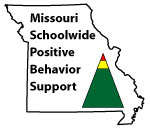
At some point, my son called their car to determine where they were in relation to where we were. I was passing a semi on the inside lane, when the driver decided to pass another, slower-moving semi. He made his way into our lane, and I sped up to get around him faster. At the same time, it was easy to see that we weren’t going to make it
around him, so I had to inch over to the left, toward the concrete median, while at the same time giving a continuous blast on the horn (multi-tasking). I was in that shoulder area with two semi trucks in the two driving lanes to my right, when the driver finally noticed his mistake and slowed to get back behind the other truck.
My wife, still on the phone with my son, wondered what was happening (Things happen pretty quickly, and you don’t always have time to narrate in real time.). He told her that we had almost been smashed into a pancake. From the driver’s seat, I yelled over to them that they almost had to pick up all of the apartment furniture and clothes from the interstate.
Through the entire ordeal, I seemed to remain calm and cool. Did you ever notice how good I make myself sound in all of my stories? I should probably work on that. When it was over, and I knew we were safe, I went over it all in my head - evaluating my reaction time, figuring out how I would have reacted if the shoulder and median had been blocked by debris, trying to determine where the fault lay. I wondered why the situation had occurred in the first place. Had the trucker not used his turn signal? Was I driving in his blind spot? Was the other truck maintaining adequate speed? Was I doing something wrong?
Often in life, we get into situations with other people that make us uncomfortable, nervous, apprehensive, scared, or angry - and it is the situation that does that to us and not the other person. But it doesn’t come out that way, does it? Instead, it comes into our thoughts and out of our mouths, dripping with name-calling and bad words. We talk to the other vehicle instead of the driver of the vehicle. In other words, we vent our negative emotions onto the person and fail to recognize that we might both be victims of the situation.
In Romans 12:18, Paul says, “If possible, as far as it depends on you, be at peace with all people.” That must mean that we use all the rules of courtesy when navigating the roads of life. Here are some examples of what I mean:
Be alert. Sometimes we put ourselves into situations in life that could be otherwise avoided altogether. That means a consistent movement of our heart, head, and eyes to God. Hebrews 12:1f tells us, “Therefore, since we also have such a great cloud of witnesses surrounding us, let’s rid ourselves of every obstacle and the sin which so easily entangles us, and let’s run with endurance the race that is set before us, looking only at Jesus, the originator and perfecter of the faith, who for the joy set before Him
endured the cross, despising the shame, and has sat down at the right hand of the throne of God.”
Yield. More often than not, we fail to consider another person’s perspective. I never learned the concept of giving someone the benefit of the doubt until I was in college. I think I was in a friend’s dorm room in a Bible study group when I first heard that phrase. That’s kind of a strange thing to remember. People can tell where they were when Kennedy was assassinated or when they heard that Elvis died. They will forever remember where they were on September 11, 2001. But I actually remember the occasion of learning about giving the benefit of the doubt. We don’t often give it much thought in the moment though, do we?
That trucker didn’t see my vehicle when he tried to change lanes. I’m pretty sure he signaled. The other driver wasn’t breaking the law by driving at a slightly slower speed. And I was within my rights to pass in the left lane. Usually in a situation like that, I’ll talk to the air and call the truck a stupid idiot or something, solving nothing. But we’re not just talking about driving; we’re talking about dealing with other people face to face. We are often unaware of the emotional or physical baggage they carry, and they are unaware of ours. We don’t know their motives, and they don’t know ours. When confronted with a potentially volatile situation, sometimes it’s just better to yield - let them speak their peace before calmly responding. It does no one any good to raise a voice in anger. In our day, we seldom slap someone on the cheek to embarrass or humiliate that person. Instead, we shoot them a zinger, cut them down sarcastically, or tell a joke at their expense - and then brag about it to our friends. I sure showed him! I really gave her a piece of my mind! He’ll think twice the next time he sees me! Matthew 15:18 reminds us that “...the things that come out of the mouth come from the heart, and those things defile the person.”
The gentle giant accomplishes more than the flaming temper. In the Beatitudes, Jesus calls us to be peacemakers. Matthew 5:9: “Blessed are the peacemakers, for they will be called sons of God.”
He goes on in the next verses to say, “Blessed are you when people insult you and persecute you, and falsely say all kinds of evil against you because of Me. Rejoice and be glad, for your reward in heaven is great; for in this same way they persecuted the prophets who were before you.” When we yield to others, we will experience insults and persecution, but our response - even when speaking against evil and false teaching - our response is positive. Jesus says, “Rejoice and be glad…” And perhaps - just
perhaps (“as far as it depends on you”), we can then respond with a calmer spirit to achieve peace - or at least get closer to it.
Another thing to remember is to use your turn signal. We rush through life at such a pace - advancing our careers, shuttling the kids to events, meeting our doctors for appointments, etc. - that we forget to breathe God’s air. Sometimes it’s easy to forget that there are others on the road. We get so caught up in the daily hectic bustle of life
that we forget to signal our next move. Any lack of communication with the rest of humanity can become detrimental to our own physical and mental health - and then when something happens, the people around us aren’t ready for our shift. Friends, we are a family, too. We are the family of God. Oh, I suppose the “of God” part doesn’t mean much: we hide things from our physical families, as well, don’t we. How often does someone sit in pain, all alone, rather than alert other people? How often do we hear of somebody who is sick, but who doesn’t want the church alerted to his/her problems? They don’t want it announced to the rest of the family, and they don’t give the rest of the family the privilege of lifting up their situation to God in prayer.
How often in a similar situation do we then proceed to store up negative thoughts about our fellow man? They didn’t call me. No one sent cards or flowers. None of them cares enough to visit me to check on me. Why? It might be that they didn’t know. Lack of communication breaks up marriages and families in the broader sense, and it breaks up the church family, as well. Communication - whether with classmates, co-workers, friends, or strangers - goes a long way to avoiding conflict.
I think of James 5 in this regard: it says, “Is anyone among you suffering? Then he must pray. Is anyone cheerful? He is to sing praises. Is anyone among you sick? Then he must call for the elders of the church and they are to pray over him, anointing him with oil in the name of the Lord; and the prayer of faith will restore the one who is sick, and the Lord will raise him up, and if he has committed sins, they will be forgiven him. Therefore, confess your sins to one another, and pray for one another so that you may be healed. A prayer of a righteous person, when it is brought about, can accomplish much.”
And finally, check your blind spot. In rushing our view of what God should be like we miss seeing that the devil and his many schemes are waiting to collide with us. Sometimes we are so sure of the direction we want to go that we fail to acknowledge and check for spiritual blind spot. We can get so busy point the finger at others that we fail to acknowledge the three fingers pointing back at us. What’s a good Scripture reference to help us with this? Matthew 7:3-5 of course: “Why do you look at the speck that is in your brother’s eye, but do not notice the log that is in your own eye? Or how
can you say to your brother, ‘Let me take the speck out of your eye,’ and look, the log is in your own eye? You hypocrite, first take the log out of your own eye, and then you will see clearly to take the speck out of your brother’s eye!” Do I have a blind spot? Maybe it’s because there is a railroad tie obstructing my view.
When we give people the benefit of the doubt, when we make the effort to better understand the other person’s needs (whether they communicate them or not), when we empathize, when we discern where the fault lies (if there is fault at all), when we consider our own sins before attacking others, we will be in a better position to get along with people on a daily basis.








































